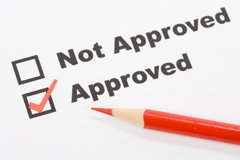- Home
- Surviving a Layoff
- Qualifying for Unemployment
Qualifying for Unemployment
Your essential guide to qualifying for unemployment. Before trying to file an unemployment claim find out about unemployment benefits eligibility and if you qualify for benefits.
Who qualifies for unemployment benefits?
Unemployment insurance benefits are available for those workers who are unemployed through no fault of their own.

Different states have different eligibility requirements for unemployment but generally these job loss situations fall under the definition "no fault of their own".
No fault job loss
- Job layoff - If you were laid off this is through no fault of your own. You were a good employee and it was a company decision. Business closure also falls into this category.
- If you voluntarily quit your job but it was due to good cause you may be eligible. You will get the opportunity to state your case for unemployment benefits eligibility. Generally information is obtained from both the employer and claimant before a decision is made.
- As the claimant you would need to convince your state unemployment office that your leaving was based on a good or just cause such as unsafe working conditions or illegal harassment to become eligible for unemployment benefits.
- Other appropriate work-related reasons for leaving your job may include a material change in working conditions such as working hours, non payment for work, forced to engage in illegal activities or relocation beyond a reasonable commuting distance.
- An urgent or compelling personal reason for leaving your job, such as your spouse relocating for a new job or having to take care of a sick spouse, may also make you eligible.
- Good cause will be determined by the state unemployment office under the appropriate state law and applicable federal laws. Qualifying for unemployment can only be determined once you have filed a claim - the unemployment office cannot make a predetermination of eligibility before a claim is filed.
- If you were fired for alleged poor performance, such as lack of skills or inadequate qualifications, you may be eligible for unemployment benefit
What disqualifies a person from collecting unemployment?
Each state differs but usually the following situations disqualify a worker from claiming unemployment benefits:
- Fired for failure to follow rules, instructions, orders or other deliberate misconduct on the job. State unemployment offices, however, will allow you to present your case for collecting unemployment after you were fired from your job. You may become eligible for unemployment if you can convince them that the dismissal was due to circumstances beyond your control or that your dismissal from your job was without just cause.
- resigned without good cause.
- self-employed/contract/freelance worker
- resigned to get married
- involved in a labor dispute
- left due to medical reasons (you may be eligible for disability benefits)
- attending school/college
- failure to make an adequate active search for work
- failure to accept a suitable job offer
- on a leave of absence
- not authorized to work in the Unites States
What are the eligibility requirements in terms of the base period?
Workers will be required to meet unemployment eligibility requirements for wages earned during a designated period of time referred to as a "base period".
This period differs from state to state but in most states it is the first four of the last five calendar quarters completed at the time you file your claim.
Your claim is usually based on insured wages earned in the base period and you will have to have earned sufficient wages for qualifying for unemployment insurance benefits.
What job search requirements are there?
You need to be available (ready and willing to immediately accept work) and able to work full-time. Your state unemployment office may require you to register with the local State Employment Service and you need to be actively engaged in looking for employment each week you claim benefits.
In general, you must not refuse an offer of suitable work without good cause.
How to claim unemployment benefit
After a job layoff these lay off tips will help you get back into the job market.
Get help with drafting your resume and get going with your job search.
Disclaimer: "Qualifying for Unemployment" is for informational purposes only and is not meant to substitute for the laws and regulations that apply to unemployment insurance benefits. Readers are advised to contact their state unemployment office with any questions they may have.